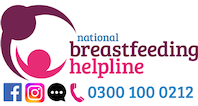This information can also be viewed as a PDF by clicking here.
The information provided is taken from various reference sources. It is provided as a guideline. No responsibility can be taken by the author or the Breastfeeding Network for the way in which the information is used. Clinical decisions remain the responsibility of medical and breastfeeding practitioners. The data presented here is intended to provide some immediate information but cannot replace input from professionals.
There is no evidence of risk of vaccinating breastfeeding mothers with the whooping cough (pertussis) vaccine as part of the campaign to protect new-born babies. For those mothers who did not receive vaccination during pregnancy, administration after delivery, whilst the mother is breastfeeding, is acceptable.
The Health Minister recommended (28 Sept 2012) that all pregnant women should receive pertussis (whooping cough) vaccination in their third trimester in order to protect their baby from this condition prior to the baby receiving its own vaccination as part of the normal immunisation schedule at 2 months of age.
Whooping cough is a disease that can cause long bouts of coughing and choking, which can make it hard to breathe. It can be very serious for young children, and even fatal for babies under one year old. New-born babies are likely to have little or no protection against whooping cough at delivery. Antibodies passed from the pregnant mother to her unborn child following vaccination, should provide some protection to the baby in the first few weeks of life. Maternal antibody levels will be low unless the mother developed whooping during pregnancy and the baby is vulnerable from delivery. It appears that antibodies passing through breastmilk are also unlikely to protect the baby.
The vaccine Repevax®, will also provide protection against diphtheria, tetanus and polio, in addition to whooping cough. There is no evidence to suggest that the use of this vaccine during pregnancy is unsafe for either the expectant mother or their unborn baby. The vaccine is not live and cannot cause whooping cough.
Bibliography
- Do mom’s vaccines protect her breastfed baby? http://kellymom.com/bf/can-i-breastfeed/meds/vaccine-protection/?
- Hale T. Medications and Mothers Milk
- HSC Public Health Agency www.publichealth.hscni.net/news/pha-encourages-pregnant-women-get-whooping-cough-vaccine
- Lactmed http://toxnet.nlm.nih.gov/cgi-bin/sis/search/f?./temp/~UeYdNm:1
- NHS Choices http://www.nhs.uk/Conditions/pregnancy-and-baby/Pages/whooping-cough-vaccination-pregnant.aspx
- Prevention of Pertussis, Tetanus, and Diphtheria Among Pregnant and Postpartum Women and Their Infants -. Recommendations of the Advisory Committee on Immunization Practices (ACIP). www.cdc.gov/mmwr/preview/mmwrhtml/rr5704a1.htm
- The Green Book (NHS) www.wp.dh.gov.uk/immunisation/files/2012/09/Green-Book-updated-280912.pdf P 277-294
©Dr Wendy Jones MBE, MRPharmS and the Breastfeeding Network Sept 2019

